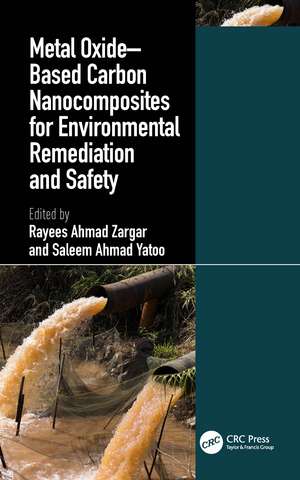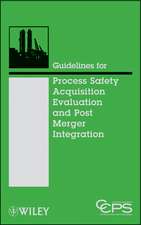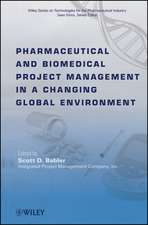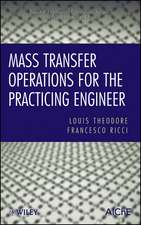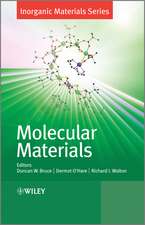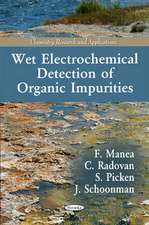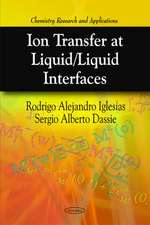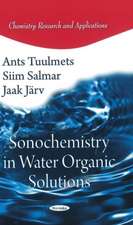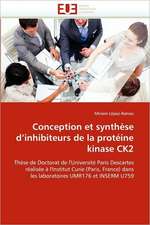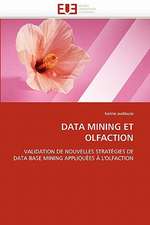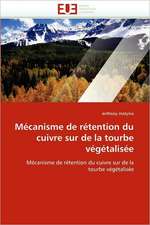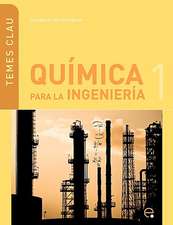Metal Oxide–Based Carbon Nanocomposites for Environmental Remediation and Safety
Editat de Rayees Ahmad Zargar, Saleem Ahmad Yatooen Limba Engleză Hardback – 17 iul 2023
Features:
- Exhaustively covers nanotechnology, metal oxide–carbon nanocomposites and their application in soil, water, and air treatments
- Explores pollutants nano-sensing and their remediation towards environmental safety
- Includes economics analysis and environmental aspects of metal oxide materials
- Describes why properties of oxide carbon–based nanomaterials are useful for environmental applications
- Discusses current case studies of remediation technologies
Preț: 895.15 lei
Preț vechi: 1091.64 lei
-18% Nou
Puncte Express: 1343
Preț estimativ în valută:
171.28€ • 178.85$ • 141.44£
171.28€ • 178.85$ • 141.44£
Carte tipărită la comandă
Livrare economică 15-29 aprilie
Preluare comenzi: 021 569.72.76
Specificații
ISBN-13: 9781032347103
ISBN-10: 1032347104
Pagini: 310
Ilustrații: 21 Tables, black and white; 39 Line drawings, black and white; 12 Halftones, black and white; 51 Illustrations, black and white
Dimensiuni: 156 x 234 x 19 mm
Greutate: 0.56 kg
Ediția:1
Editura: CRC Press
Colecția CRC Press
ISBN-10: 1032347104
Pagini: 310
Ilustrații: 21 Tables, black and white; 39 Line drawings, black and white; 12 Halftones, black and white; 51 Illustrations, black and white
Dimensiuni: 156 x 234 x 19 mm
Greutate: 0.56 kg
Ediția:1
Editura: CRC Press
Colecția CRC Press
Public țintă
Academic and PostgraduateCuprins
1. Synthesis and Characterization of Metal Oxide Nanoparticles for Antimicrobial Application. 2. Environmentally Friendly Green Approaches and Applications of Nanoparticles. 3. Economic Analysis and Environmental Aspect of Metal Oxide Materials. 4. Nanomaterials for Renewable Energy: Present Status and Future Demand. 5. Evaluation of the Healthiness of Nanomaterials: Environmental and Human Health Approaches. 6. Fundamentals of Functional Materials: Applications for Clean Environment. 7. Metal Oxide with Activated Carbon for Wastewater Treatment. 8. Nano–Metal Oxide–Based Materials for Contaminated Soil Treatment. 9. Recent Advancements and Applications of Nanosensors in Various Fields. 10. Review on Attributes and Device-Designing Technologies on Sensors (Chemical, Biochemical, Nano- and Bioanosensors): History, Importance, Key Challenges and Future Prospects along with Selective Case Studies. 11. Metal Oxide Decorated CNT Nanosensors: A Brief Overview. 12. Metal Oxide–Based Carbon Nanocomposites for Pollutant Nanosening
Notă biografică
Dr Rayees Ahmad Zargar is working as an assistant professor at Baba Ghulam Shah Badshah University, Rajouri (J&K) in the Department of Physics. Dr Zargar received his PhD on iron-based superconductors in the Physics Department from Jamia Millia Islamia in March 2016. Later, he joined the National Physical Laborator, New Delhi, as a postdoc researcher. He has wide expertise in the field of superconductors, manganites, and optical properties of semiconductors. During the last years, he has concentrated on diluted magnetic semiconductors, where he has used spintronics, sensors, and optoelectronics devices. He is an author and co-author of more than 60 papers with good impact factors, has reviewed many papers, and has authored three books and six chapters. He is an editorial board member of international journals and regular referee of Journal of Physics and Chemistry of Solids (JPCS), Journal of Occupational and Environmental Medicine (JOEM), Bentham Science and Physics C. He has received a good number of citations according to the Web of Science. He has participated in a number of national and international conferences, seminars, and workshops.
Dr Saleem Ahmad Yatoo has an MSc in environmental science and sustainable development. He has pursued his MPhil and PhD in environmental science and sustainable development from Central University of Gujarat. He is working as a lecturer in the higher education department of Jammu and Kashmir. He has teaching experience at the undergraduate and graduate levels. Moreover, he has published a good number of papers with publishers of international repute like Springer. He has received a good number of citations globally according to Web of Science and other indexes. He has participated in a number of national and international conferences, seminars, workshops, and training programs, as well as outreach courses from Indian Institute of Remote Sensing, Dehradun India. In addition to his other accomplishments, he has qualified National Eligibility Test and Jammu and Kashmir State Eligibility Test at the national and state levels, respectively. His areas of expertise are remote sensing and GIS, land surface temperature, land use/land cover change, climate change, ecology, biodiversity, environmental nanotechnology, water pollution analysis, wetland diversity, and limnology, among others.
Dr Saleem Ahmad Yatoo has an MSc in environmental science and sustainable development. He has pursued his MPhil and PhD in environmental science and sustainable development from Central University of Gujarat. He is working as a lecturer in the higher education department of Jammu and Kashmir. He has teaching experience at the undergraduate and graduate levels. Moreover, he has published a good number of papers with publishers of international repute like Springer. He has received a good number of citations globally according to Web of Science and other indexes. He has participated in a number of national and international conferences, seminars, workshops, and training programs, as well as outreach courses from Indian Institute of Remote Sensing, Dehradun India. In addition to his other accomplishments, he has qualified National Eligibility Test and Jammu and Kashmir State Eligibility Test at the national and state levels, respectively. His areas of expertise are remote sensing and GIS, land surface temperature, land use/land cover change, climate change, ecology, biodiversity, environmental nanotechnology, water pollution analysis, wetland diversity, and limnology, among others.
Descriere
This book focusses on nanotechnology for the preparation of metal oxide-based carbon nanocomposite materials for environmental remediation. It analyses the use of nanomaterials for water, soil, and air solutions, with respect to emphasizing environmental risks of pollution including case studies.
